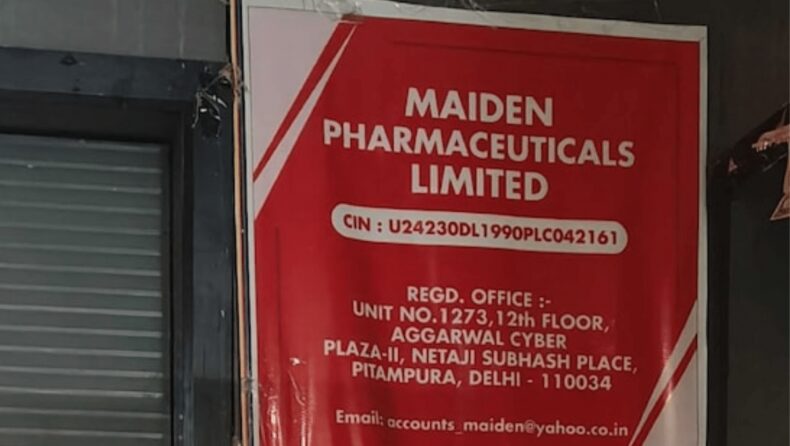The drug of the Haryana company was sent to the Gambia, not sold in India taking a strict stand, the government has started an investigation into the claim of death of 66 children in the African country of the Gambia due to the syrup made in India.
Samples of medicines have been sent from the Haryana-based company for testing, and a report has also been sought from the World Health Organization (WHO) to know whether the death was due to this syrup or due to some other reason. Earlier, the WHO had asked to ban the sale of four cups of syrup as dangerous, after which the Central Drugs Standard Control Organization, an agency of the Government of India (CDASCO) started an investigation.
syrup made in Sonipat: All four were made only by Haryana’s Sonipat Madam Pharmaceuticals. The health ministry is also investigating whether these drugs have been shipped only to The Gambia or have been supplied elsewhere.
Results of samples in 2 days: CDASCO said that the investigation of the case has been started with the help of the Haryana State Drug Controller, and it will take 2 days for the results of the investigation, whereas WHO has not informed the government about the medicines even after 6 days.
The WHO tested 30 samples, out of which the amount of diethylene glycol and ethylene glycol was found to be more than the standard. According to experts, carbon compounds are mixtures, they have neither fragrance nor colour, it is sweet, and it is mixed with children so that they can drink them easily.
Health officials in the African country of Gambia issued an alert last July after dozens of children fell ill with kidney problems, all with the same pattern of illness. After this, in September, the WHO got the samples of medicines tested and informed India on 29 September.
Want to get to the bottom of the matter, have called for reports from our buyers present in African countries, have not supplied us with even a single one in India- Naresh Goyal, Director, Maidan Pharmaceuticals. Up to a maximum of 0.4 mg per kg can be added to the drug or compound, it can be fatal if more than 1 g per kg. So far, the World Health Organization or the company has not disclosed the amount of diethylene glycol and ethereal glycol in these drugs.
How it affects the body- First, with vomiting, Diarrhea and abdominal pain, the brain starts hearing, and then the kidney stops working. There is difficulty in passing urine and with increased blood pressure, the heart rate becomes irregular, after which there is a condition of paralysis and then the patient can die.
-This compound is banned in America, Australia and European countries
-the Gambia or the government started a special campaign to take them back from every home.
-WHO said that under this contaminated pressure, the Gambia is likely to be distributed to other countries
After the claims of the death of children since night, the teams of Delhi’s Sonipat Chandigarh raided this pharmaceutical factory from Sonipat on Thursday. Teams led by Haryana Drug Controller Manmohan Taneja took samples and investigations are going on for the day. Haryana Health Minister Anil Vij said that 5 samples of the tip of ideas have been sent to the Central Pharmaceutical Laboratory in Kolkata at the office of Maidan Pharmaceuticals. This pharmaceutical company’s cough syrup is approved for export only. It is not available for sale in the country. Strict action will be taken if anything is found wrong, Chief Minister Manohar Lal said that the Government of India deals with the international issue and they are dealing with it. State drug controller Manmohan Taneja said that the company has been stopped from making only the prepared samples have also been sealed till the report comes. All India Chemical and Distributors have been quoted as saying that this company does not supply medicines in India. Maidan Pharmaceuticals is a Haryana company that was established in 1990 in Sonipat, it has three plants in Haryana, and its corporate office is in Pitampura, Delhi.
According to official sources, as long as any medicine in our country goes to another country, then that country does its testing before being sold in the market. In such a situation, the question arises whether there was no shortage when testing was done in The Gambia or it could be that medicines were used without testing in that country













